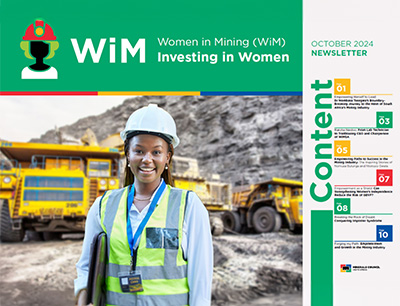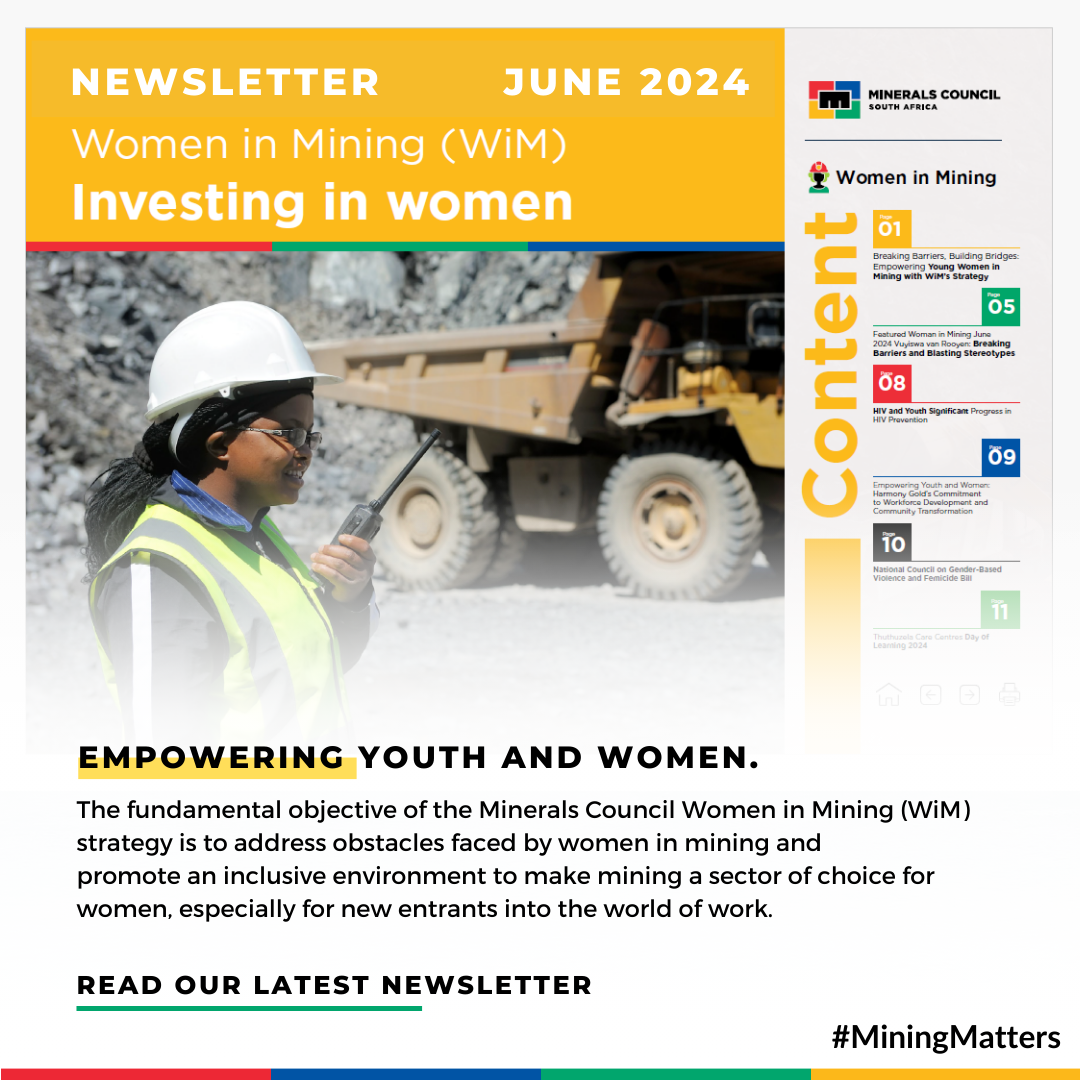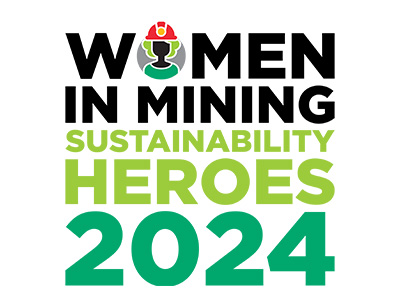21 August 2020, Johannesburg
The Minerals Council South Africa has today launched the first National Day of Women in Mining highlighting its focus on the implementation of initiatives designed to achieve stretch targets for the representation and advancement of women in the South African mining industry.
At present, women make up 12% of the mining workforce, compared to 6% in 2008. While regulatory, social and physical barriers have played a part in the slow progress experienced, bold and collaborative action is required to address this issue.
This first National Day of Women in Mining seeks to spur the process within the Minerals Council leadership, in mining company boardrooms and within mining companies themselves, and to put the advancement of women firmly on the agenda. Every year the industry will come together in August to take stock of progress. The Minerals Council has adopted a similar approach to that being used to address safety and health, which is considered a fundamental priority every day, for women in mining.
The stretch targets set and agreed by Minerals Council members are to ensure that we at least double the percentage of women in mining by 2025 and ultimately work towards 30% to 40% women representation across the industry and 50% in management over the next decade.
Nolitha Fakude, Minerals Council Vice President and Chair of the Women in Mining Leadership Forum, said: “There are moral and regulatory imperatives to advancing women in mining. But there is an even more important point: No industry can continue to thrive if it only uses half of its population. When we bring in people with different skills and abilities to make a positive contribution, we get the best outcomes for the industry and for South Africa’s economy.”
The opportunities to accelerate the work of the Women in Mining Leadership Forum include the piloting of remote working models and technology; a push to implement technology with potential to benefit and attract women; and a mindset shift which offers an opportunity to challenge the status quo, including on gender diversity.
Adds Ms Fakude: “We have seen the impact of COVID-19 disproportionately affecting women – their jobs are typically more precarious than men’s, and they tend to assume the greater burden of family duties. But, herein lies great opportunity too. In a post-COVID-19 environment, we will be seeing workplaces changing to accommodate greater flexibility, social distancing and increased modernisation. These present opportunities for increasing workplace diversity.”
Minerals Council CEO, Roger Baxter emphasised that: “For the industry to meet the bold and ambitious targets we have set will require not just real commitment from senior executives, but the inculcation of this changed culture across all levels in all our member companies. The Minerals Council Women in Mining Leadership Forum – the most high-level structure under the Board – has representatives of CEOs and senior executives from 16 mining company members. That the leaders of two of South Africa’s largest mining companies, both Minerals Council Office Bearers, have agreed to lead this initiative is testimony to the importance we place on this issue. In addition, a senior Women in Mining Task Team remains in place to ensure that the policies and intentions adopted at board level can be implemented.”
“One small but significant step is that, at the beginning of every Minerals Council meeting, there will be reflection on the continued importance of women in mining, the challenges that are being faced and the successes that are being achieved. This small step will ensure that we put gender on the agenda!”
Neal Froneman, Minerals Council Vice President, and Women in Mining Champion, noted that this initiative was not something that was targeted only at women, but also at men at all levels of the industry. “I call on the leaders of our industry – in companies, within organised labour and within the regulator – to lead this change for the betterment of our industry and our society.”
Mr Froneman also urged all mining industry leaders and employees not to forget the very real hardships faced by women in mining and in communities every day, especially as a result of gender-based violence. He urged everyone – men and women alike – not to simply be bystanders, but to report and stop gender-based violence and harassment both at work and at home.
The three pillars driving women in mining in the current context – governance, communication and action – are supported by six priority initiatives, which focus on the development of an organisational structure and dynamic communication strategy; the public celebration of women in mining COVID-19 heroes; ensuring a commitment from member companies to deliver on the seven foundational measures; the defining role of women in our COVID-19 response; and the integration of inclusion of best practices in mining modernisation.
The Women in Mining Task Team is working towards seven key foundational measures which we hope to see in place by the end of 2020 – reaffirming zero tolerance for gender-based violence through the Stop Abuse campaign; developing gender diversity and inclusion policies; providing a reporting system for gender diversity issues; initiating unconscious bias training to transform culture; deploying ongoing company-wide pulse check surveys; building an inclusive physical environment; and supplying PPE specifically designed for women.
An infographic outlining the Minerals Council’s strategy on women in mining may be accessed at this link: https://www.mineralscouncil.org.za/downloads/send/19-latest/1213-women-in-mining-infographic
For further information, please contact:
Charmane Russell
Tel: +27 (0)11 880 3924 or Mobile: +27 (0)82 372 5816
Email: [email protected]
Memory Johnstone
Tel: +27 (0)11 880 3924 or Mobile: +27 (0)82 719 3081
Email: [email protected]
Web: https://www.mineralscouncil.org.za/


